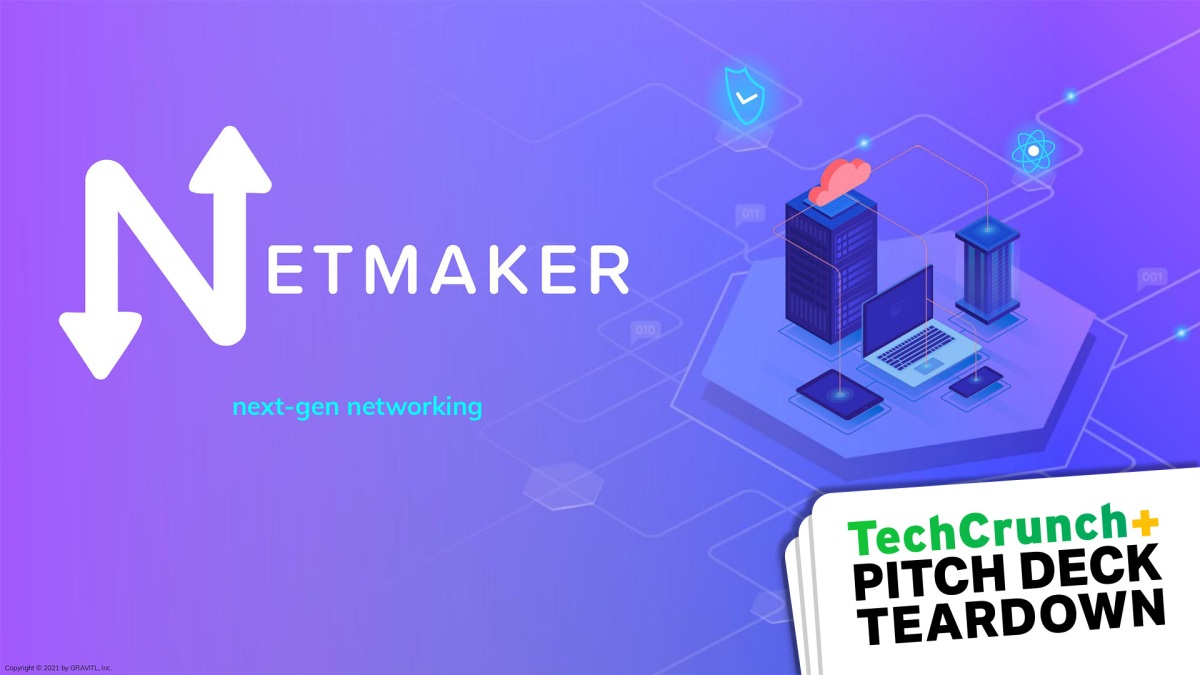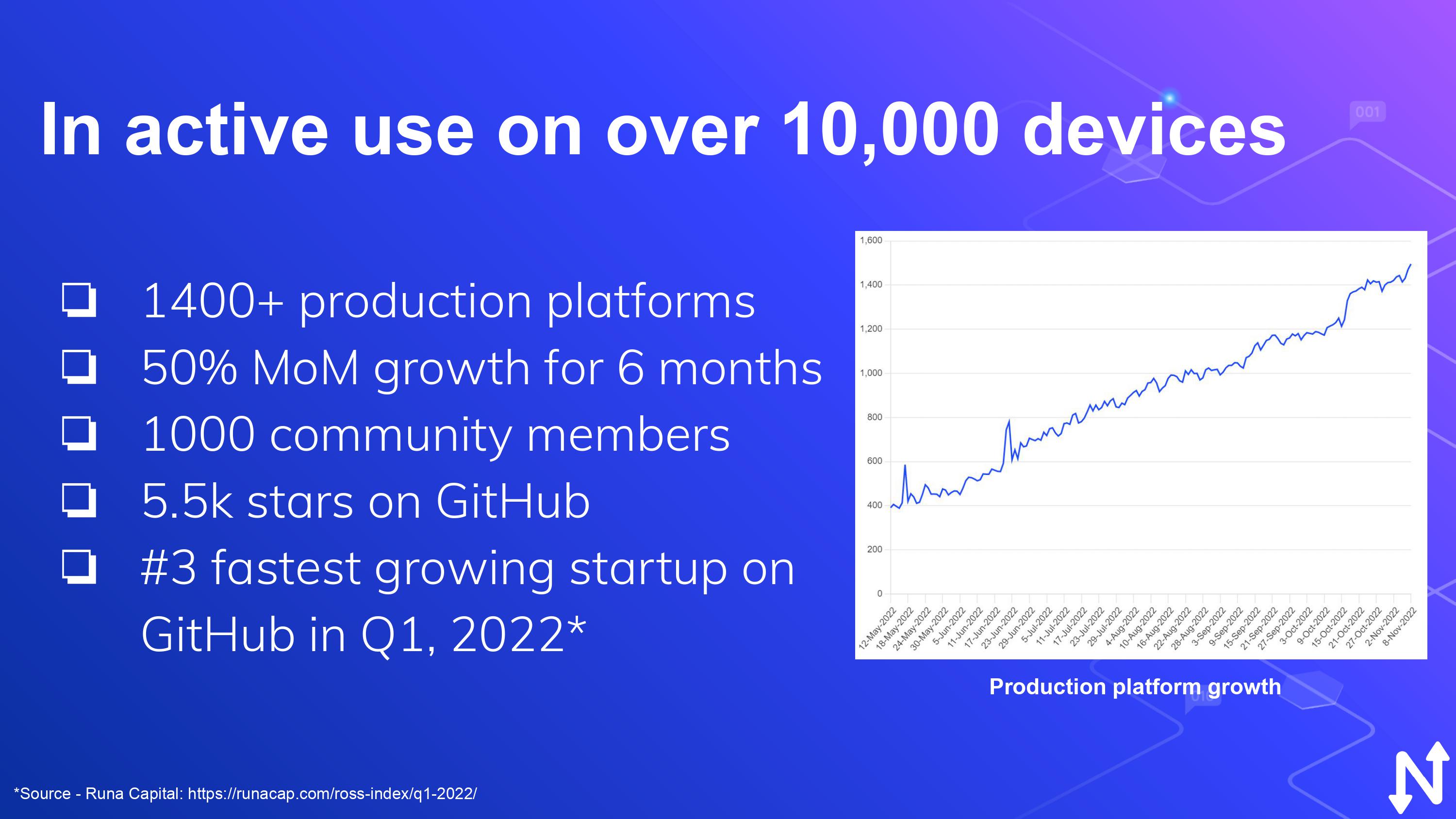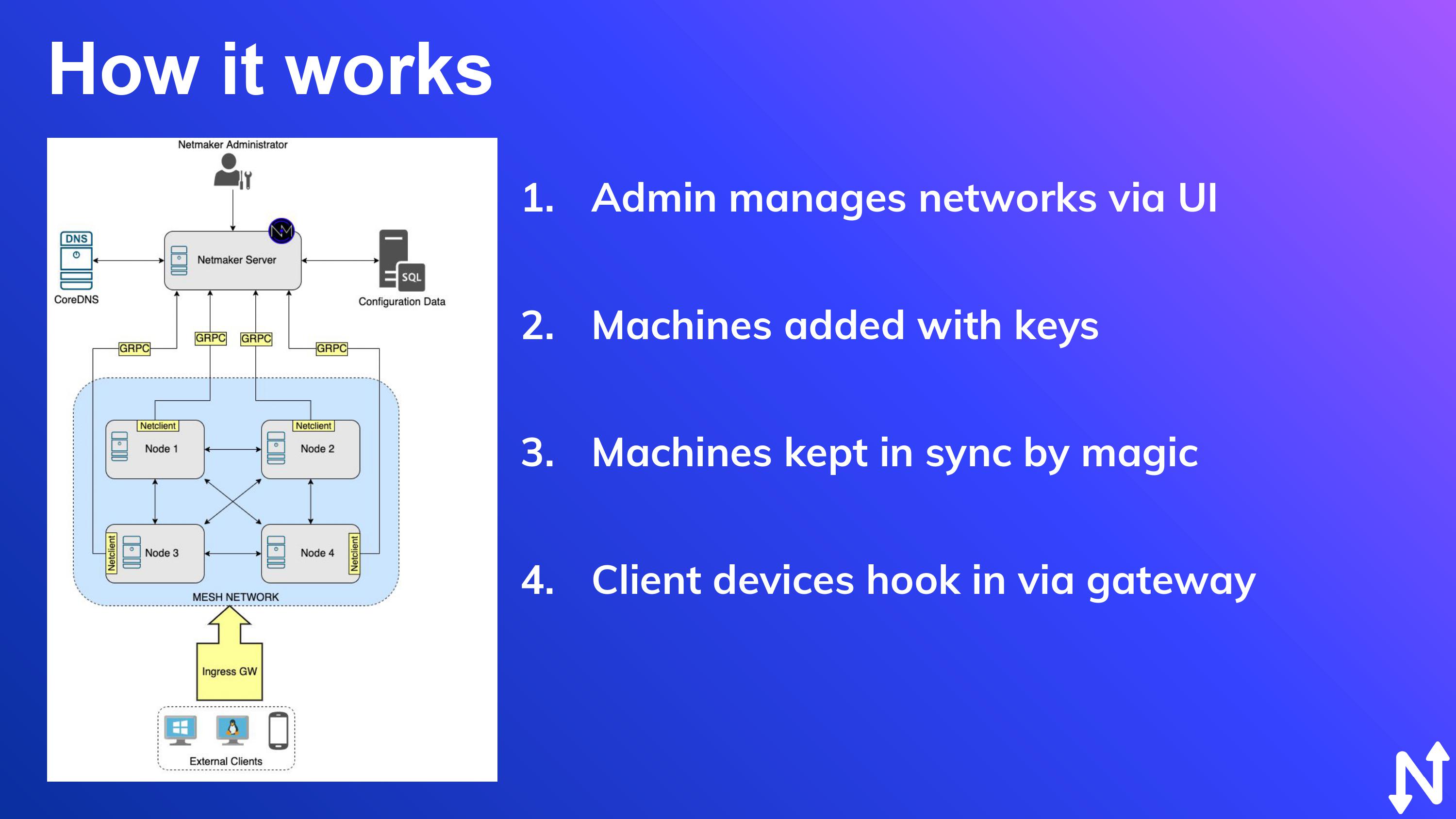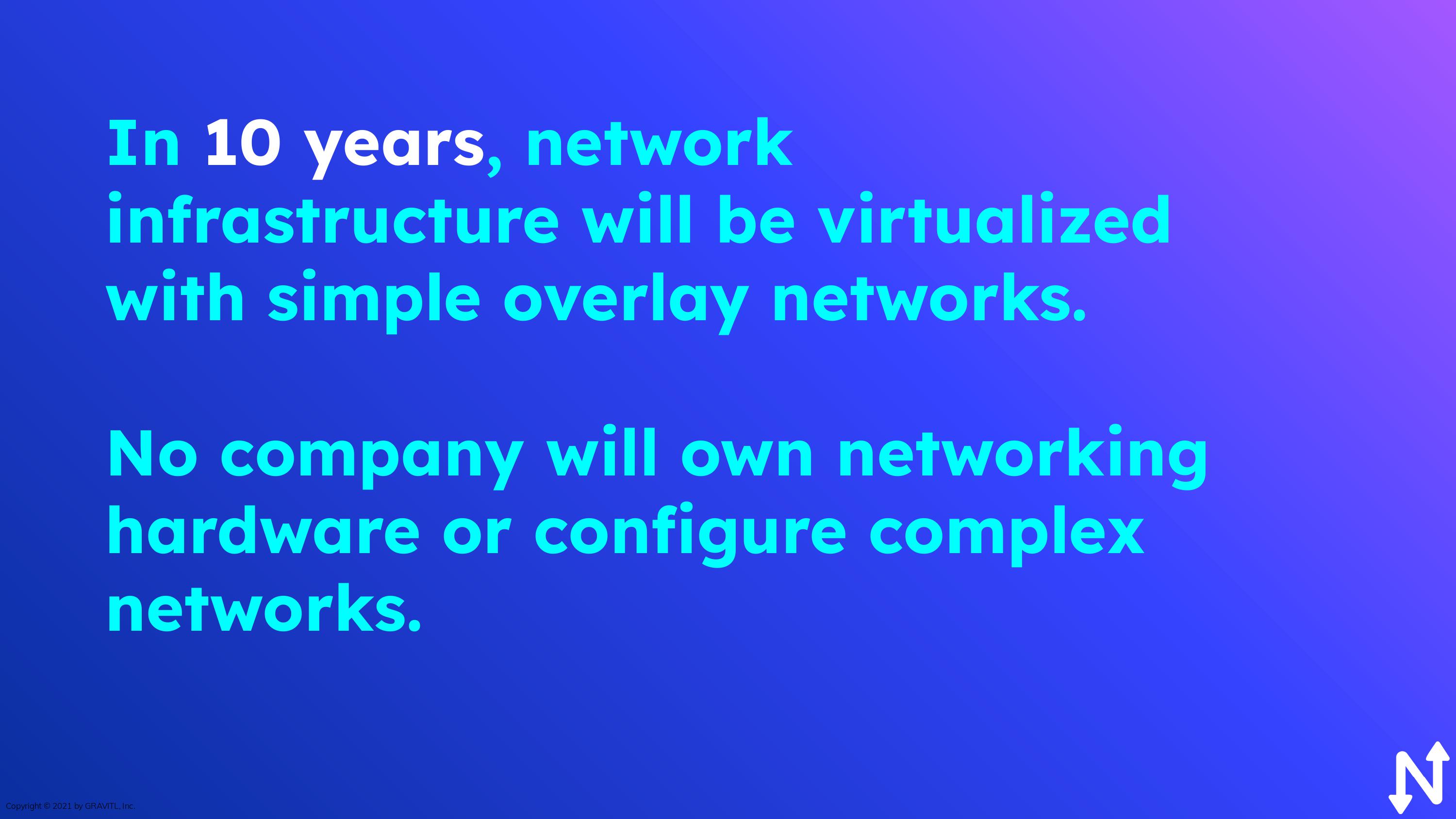
Sample seed pitch deck: Netmaker’s $2.3M deck
In a world where people working from home still need access to networks and a ton of other use cases, Netmaker lets users create and manage VPN connections without the learning curve, as Romain wrote last year when the company announced its seed round.
Netmaker submitted its pitch deck to TechCrunch+, and today we’re taking a close look at the deck the company used to raise its $2.3 million round.
We’re looking for more unique pitch decks to tear down, so if you want to submit your own, here’s how you can do that.
Slides in this deck
Netmaker has a tight, 14-slide deck. The company tells me it redacted certain sensitive data (such as financial information), but those parts have been marked clearly so the deck still makes sense in context.
- Cover slide
- Problem slide
- Vision slide
- Solution slide
- Market-size slide
- Product slide
- How it works slide
- Traction slide (“In active use on over 10,000 devices”)
- Product evolution slide
- Go-to-market slide
- Road map slide
- Competition slide
- Team slide
- Closing slide
Three things to love
Netmaker is sharing a lot of information in just a handful of slides about what could be perceived to be a pretty complex, technical space. The company has done an incredible job of keeping things accessible.
Traction is king

[Slide 8] Great traction forgives all other sins, and this graph is pointed in the right direction. Image Credits: Netmaker
Having powerful traction is great for any startup, as rapid growth implies a company has found something important in the market and can attract new customers.
That said, some of these stats seem like vanity metrics to me. For example, why is it important to have 5,500 stars on GitHub? Does that translate into customers? Why is the 1,000 community members number important? Netmaker could have tried to connect the dots: Why are these metrics important to the company and how do they show rapid growth?
I did find myself stumbling on the claim of “50% MoM growth for 6 months.” It’s hard to overstate how impressive that is, and as an investor, I’m finding myself itching to learn what the growth engine is here. How much did the company have to spend to acquire those customers? How can it continue along this trajectory?
How it works

[Slide 7] How it works. Image Credits: Netmaker
When your target audience is people who design, implement and maintain network infrastructure, you can bet that most investors you’re speaking to will not be fully au fait with the intricacies of the market. I do know VCs who have deep domain knowledge, but even the ones who are experienced may have pretty out of date information. The landscape in this space, like in so many others, changes nearly every day.
This “How it works” slide may be a little too simple, to be honest. I’d have loved to see screenshots of the actual provisioning/set-up screens to understand how hard it is to configure a network or add machines. Having said that, this is a great base-level introduction to explain the “Here’s what we do and why it matters” part of the story.
A clear vision of the future
I love how Netmaker pulls no punches in its vision for the future of its industry. This vision may prove to be inaccurate, but the company is not confused. It’s refreshing to see such clarity and the company’s ability to hook into its vision:

[Slide 3] Clarity of its vision of the future. This is one of my favorite slides in this deck. Image Credits: Netmaker
The company does something very right here: It paints a clear, bold and differentiated view of the future.
Now, you could argue whether this is correct. Will nobody at all own their own networking hardware? Will there be no need to configure complex networks? I’m not a network architect, but that sounds like a bit of a stretch. At the very least, the internet itself and the underpinning technologies that support Netmaker will presumably need some amount of hardware.
Nonetheless, I think the company does something right here: It paints a clear, bold and differentiated view of the future and backs that up with the steps it must take to put itself at the forefront of this movement.
In the rest of this teardown, we’ll take a look at three things Netmaker could have improved or done differently — along with its full pitch deck!


